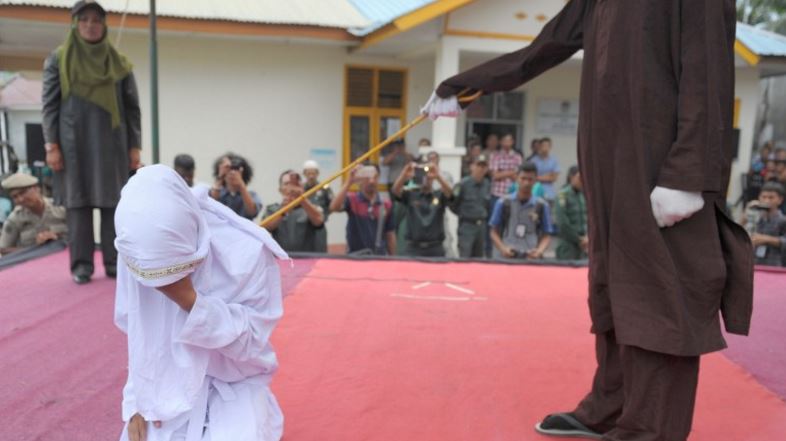As the only region of Indonesia permitted to enforce its own brand of sharia law, Aceh has become a target of human rights advocates from abroad and within Indonesia who criticize the canings used by the local government to punish Muslims and non-Muslims as cruel and inhumane public spectacles.
However, many people strongly support Aceh’s use of corporal punishment, including Muslims in other countries. It seems that some foreign tourists have even made a visit to watch one of Aceh’s public canings a part of their sightseeing itinerary.
On Monday, dozens of tourists from Malaysia came by bus to visit the Lamteh Mosque in Banda Aceh to witness a dozen people getting publicly caned for crimes ranging from gambling to ikhtilat (the intermingling of men and women who are not married).
Among the tourists was a Malaysian State Senator from Klanten, Dato Dr Johari bin Mat, who said that he respected Aceh implementation of Islamic law and use of public canin to ensure security and public order.
“This is the first time I witnessed a caning in Aceh. So far, I’ve only viewed through a video that was taken by a friend when he visited Aceh some time ago,” said Dato Dr Johari bin Mat on Monday as quoted by Kompas.
He also noted that sharia caning in Aceh, similar to how it is implemented in Malaysia, is not meant to injure the guilty party but to make them repent for their mistakes and ask for God’s forgiveness.
In Malaysia, sharia caning (as opposed to judicial caning, which is also used there) is done in an enclosed area, away from public views. This is in contrast to how it is implemented in Aceh, where hundreds of people gather to watch (and often take pictures and video) of the canings, which take place on a raised platform for all to see.
Back in 2007, Cipta Hunai, then Aceh’s head of tourism, tried to sell the region’s application of sharia law as a possible attraction for tourists, including their use of public canings.
‘Punishments are carried out to prevent bad behaviour among Muslims, but they could also be good for tourism,’ Cipta told the South China Morning Post. ‘I don’t think they are going to scare the tourists. To defend truth and justice is not something scary. I believe tourists would agree.’ (Apparently, some do.)
In February of this year, an Indonesian man collapsed while being publicly caned for spending time with a woman who is not his wife. Officials carried him off stage when he could no longer stand, but once he came to, a doctor examined him, said he was in good health, and he was taken back up on stage to be flogged another 14 times.




